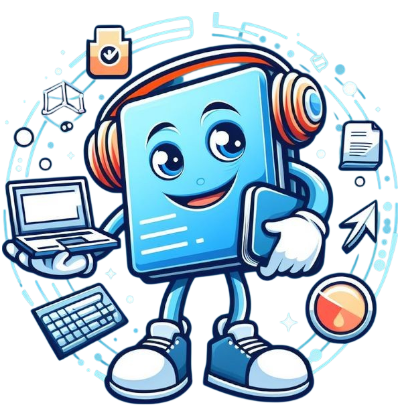What is the “Artificial Intelligence” AlphaGo That Makes People Admire?
Introduction to AlphaGo – A Groundbreaking AI Achievement
AlphaGo is a revolutionary artificial intelligence (AI) system developed by DeepMind, a subsidiary of Google. This cutting-edge technology has stunned the world by defeating some of the best human players in Go, an ancient and highly complex board game. Unlike previous AI systems that relied solely on brute-force calculations, AlphaGo utilizes advanced machine learning techniques, deep neural networks, and reinforcement learning, allowing it to play at a superhuman level.
This incredible milestone in AI development not only highlights the potential of artificial intelligence but also raises critical questions about the future of machine learning and its impact on human society.
What is AlphaGo?
AlphaGo is an advanced AI program designed specifically for playing Go, a strategy game that originated in China more than 2,500 years ago. It was first introduced in 2015 by DeepMind Technologies, a company acquired by Google in 2014. Unlike traditional chess-playing programs such as IBM’s Deep Blue, which rely on brute-force computation, AlphaGo utilizes deep neural networks combined with reinforcement learning to make decisions in a way that mimics human intuition.
At the core of AlphaGo’s success lies a 12-layer deep neural network that processes vast amounts of game data, analyzes potential moves, and refines its strategy through continuous self-play. This AI self-improves by learning from its own experiences, an approach that differentiates it from earlier rule-based AI systems.
How Does AlphaGo Work?
Neural Networks and Machine Learning
The foundation of AlphaGo’s intelligence is its deep learning algorithm, which operates through two primary neural networks:
- Policy Network: Determines the most promising moves based on previous games and training data.
- Value Network: Evaluates board positions to predict the likelihood of winning from any given state.
These networks allow AlphaGo to analyze millions of possible board configurations and choose the optimal moves with extraordinary efficiency.
Reinforcement Learning and Self-Play
Unlike previous AI programs that relied solely on pre-programmed strategies, AlphaGo was trained using reinforcement learning, where it played against itself thousands of times, constantly improving its decision-making abilities.
Through self-play, AlphaGo refined its strategies beyond human capabilities, discovering innovative and unpredictable moves never seen before in the history of Go. This ability to develop new tactics independently is what makes AlphaGo a revolutionary advancement in AI research.
The AlphaGo vs. Human Champions Showdowns
AlphaGo vs. Fan Hui (2015)
In October 2015, AlphaGo faced its first major test against Fan Hui, a European Go champion. The AI won all five games, marking the first time a computer program defeated a professional human Go player without handicaps.
AlphaGo vs. Lee Sedol (2016)
In March 2016, AlphaGo shocked the world by defeating Lee Sedol, a 9-dan South Korean Go grandmaster and one of the greatest players in history. The match ended with AlphaGo winning 4-1, demonstrating the AI’s unprecedented strategic depth. Lee Sedol himself admitted that he underestimated the capabilities of AI before the match.
AlphaGo vs. Ke Jie (2017)
One year later, AlphaGo played against Ke Jie, the world’s number-one-ranked Go player at the time. Ke Jie, known for his deep understanding of the game, could not overcome AlphaGo, losing 3-0. This victory solidified AlphaGo as the most dominant force in the history of Go, surpassing human strategic thinking.
The Significance of AlphaGo’s Achievements
The success of AlphaGo was not merely about beating humans at a game; it marked a paradigm shift in artificial intelligence and deep learning research. Several key takeaways include:
- Advancement in AI Decision-Making – AlphaGo demonstrated that AI could surpass human experts in a game requiring intuition and long-term strategy.
- Breakthrough in Deep Learning – The system’s ability to learn and adapt without explicit human programming showcased the power of neural networks and reinforcement learning.
- Applications Beyond Gaming – The algorithms behind AlphaGo are now being used in real-world applications, such as medical diagnosis, financial modeling, and climate prediction.
The Evolution of AlphaGo: AlphaGo Zero and AlphaZero
Following AlphaGo’s success, DeepMind introduced AlphaGo Zero, a more advanced version of the AI. Unlike its predecessor, AlphaGo Zero was trained from scratch without using any human game data, learning purely through self-play. In just 40 days, AlphaGo Zero surpassed the original AlphaGo, achieving superhuman performance.
Later, DeepMind unveiled AlphaZero, a general-purpose AI system capable of mastering multiple games, including Go, Chess, and Shogi, with minimal human input. This development proved that the principles behind AlphaGo could be extended to various domains, further pushing the boundaries of machine learning and artificial intelligence.
Future Implications of AlphaGo’s Technology
While AlphaGo was initially designed for Go, the breakthroughs in deep learning, reinforcement learning, and neural networks have far-reaching implications. Some of the most promising applications include:
- Healthcare – AI-powered diagnostics, personalized treatment plans, and early disease detection.
- Finance – Predictive analytics for stock markets and risk management.
- Climate Science – Advanced modeling to predict environmental changes and natural disasters.
- Robotics – AI-driven automation in industries ranging from manufacturing to space exploration.
The success of AlphaGo underscores the limitless potential of AI, paving the way for a future where intelligent machines assist humans in solving complex problems across various fields.
Conclusion
AlphaGo is more than just an AI program that mastered Go—it represents a technological breakthrough in artificial intelligence, machine learning, and neural networks. By defeating the world’s best human players, AlphaGo has proven that AI can outperform human intelligence in domains requiring intuition, creativity, and strategy.
As AI continues to evolve, the innovations pioneered by AlphaGo will play a crucial role in shaping the future of AI applications, revolutionizing industries, and challenging our understanding of machine intelligence. With the rise of even more advanced systems like AlphaGo Zero and AlphaZero, we are entering an era where AI will not only match but exceed human cognitive abilities in ways we never imagined possible.
The legacy of AlphaGo will continue to inspire future breakthroughs in AI, pushing the boundaries of what machines can achieve and redefining the relationship between humans and artificial intelligence.











